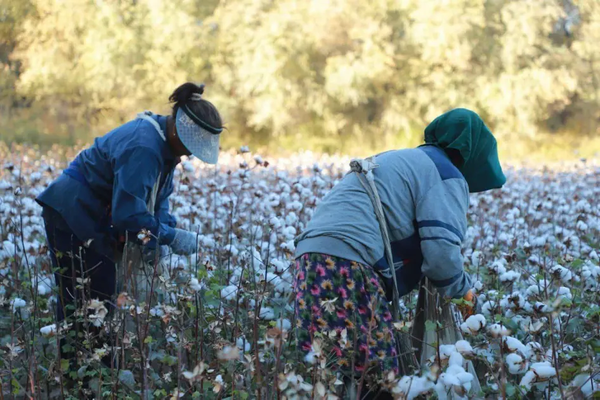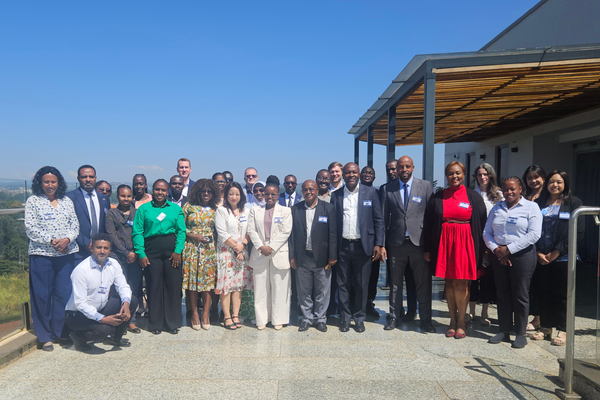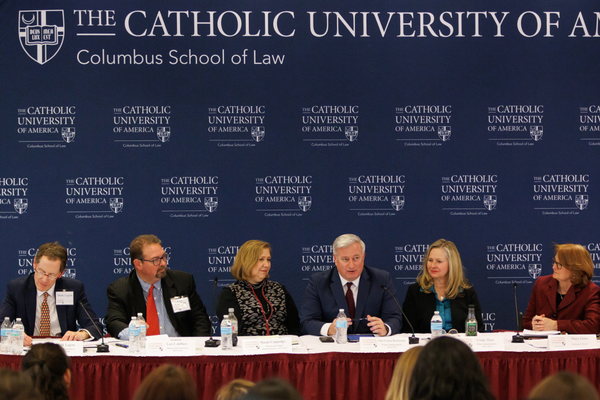KK Park evacuees face dire conditions at the Thai-Myanmar border
Observers question the motives behind the KK Park raid as freed workers arrive in Thailand, new U.S. trade agreements include labour rights provisions, and CSOs in Myanmar continue anti-trafficking efforts amid conflict and displacement.

The shutdown of the KK Park online fraud compound in Myawaddy, Myanmar, reported by state media two weeks ago, has triggered a humanitarian emergency along the Thai-Myanmar border. While authorities framed the operation as a crackdown on cybercrime, the closure has displaced hundreds of workers and trafficking victims into Thailand.
More than 1,500 people, many believed to be trafficking victims, have fled the area and crossed into Mae Sot. They are now sleeping outdoors in car parks and open areas near the border checkpoint in extremely basic conditions, according to NGOs working on the ground. Sanitation is limited, food supplies are low, there is minimal shelter, and structures that could be used to house people have not been made available because Thai authorities fear property damage from large groups. Medical care and psychological support are also scarce – while a Ministry of Health medical booth offers basic first aid, individuals with serious injuries are told to seek hospital treatment, which is impossible for those stuck in limbo with few resources.
While some embassies are providing food and basic items for their nationals, citizens of countries without representation in Thailand, such as Ethiopia and Uganda, rely entirely on NGO assistance. Humanitarian organizations are currently trying to raise at least US$25,000 to cover meals for the next few weeks.
While a pre-screening process by Thai authorities and NGOs is underway, identifying trafficking victims is complex as exploitation can occur throughout the migration and employment journey or at various stages of involvement in scam operations. Moreover, most people are choosing to accept liability for immigration offenses rather than go through the National Referral Mechanism (NRM) process in order to expedite their return home, with many able to pay their own travel costs once processed by Thai authorities. According to some NGOs, this suggests different motivations and levels of self-sufficiency compared with past groups of scam center evacuees, although many individuals, particularly those from African countries, remain vulnerable and do not have the means to fund their repatriation.
Thailand has kept the border open, allowing continued crossings and evacuations coordinated through NGOs and the Thai military. However, while new arrivals continue at Mae Sot, many people remain trapped or in hiding in Myawaddy, including victims reportedly recaptured by Myanmar forces. Recruitment also continues, with armed actors attempting to re-enlist victims into scam operations with false job offers. Some workers have relocated to other scam zones such as Yatai and Shwe Kokko, and Telegram channels used by scam industry insiders show active coordination of these relocation efforts.
While policymakers and journalists in multiple countries have accepted a narrative that frames the KK Park shutdown as a powerful blow against a notorious scam operation, NGOs describe it as a tactical maneuver rather than a genuine dismantling of a trafficking network. The raid, carried out jointly by the Myanmar military (Tatmadaw) and Border Guard Force (BGF), involved three ground-deployed bombs that destroyed five buildings near the Thai border, they say. The blasts were not airstrikes or drone attacks but manually detonated, and no casualties were confirmed, suggesting a symbolic show of force rather than a real assault.
Instead, analysts believe the operation served political and financial motives, with the Myanmar regime seeking to project an image of action against scam compounds while pressuring BGF operators to increase profit-sharing. When the BGF resisted, observers say, the Tatmadaw raided KK Park to reassert control. Other networks quickly agreed to higher payments, and Chinese-linked syndicates in other compounds boosted financial contributions to the regime immediately afterwards, according to reports.
NGOs, which remain the main source of on-the-ground intelligence, stress that scam industry operations in the area have not disappeared but merely relocated. No sustainable or official resolution has been implemented, they say, warning of a risk of complacency at policy level due to misleading positive reporting.
Here’s a roundup of other noteworthy news and initiatives:
The UN Special Rapporteur on trafficking in persons has called for an urgent, child-centered response to child trafficking in conflict zones, warning that widespread failures in prevention, protection, and justice systems are leaving children exposed to severe exploitation and rights violations. States are urged to recognize trafficked children as victims under international law, strengthen child protection systems, and ensure timely, rights-based recovery and reintegration measures.
Cambodia’s bilateral partners are becoming increasingly angered by the impact of extensive online scam activity perpetrated from its territory, as huge new compounds expand along its border with Vietnam. Cyber Scam Monitor reports that China, Thailand and South Korea are putting greater pressure on the Cambodian Government to act, while the U.S. and UK issued coordinated sanctions targeting what the U.S. has dubbed the “Prince Group transnational criminal organization”.
This analysis explores how sanctions targeting cyber-scam networks in Southeast Asia can disrupt criminal ecosystems and help protect journalists and researchers from defamation-related “lawfare”. It argues that official designations provide credible grounds for public-interest reporting, supporting civil society efforts to expose and counter organized crime linked to human trafficking and forced labour.
The United States has announced new reciprocal trade agreements with Malaysia and Cambodia that include the strongest labour rights provisions since the United States-Mexico-Canada Agreement (USMCA), such as bans on forced labour, migrant worker protections, and independent labour courts. The deals signal a shift towards integrating human rights into trade policy, although their impact will depend on credible enforcement and political will.
Sheffield Hallam University temporarily halted research on forced labour in China earlier this year after pressure from Chinese authorities, raising serious concerns about foreign interference and academic freedom in the UK. The university has since apologized and reinstated the work, but the case highlights the growing tension between human rights research and the financial and political pressures tied to international partnerships with China.
A new Freedom Fund report details how community-led organizations in conflict-affected parts of Myanmar have continued anti-trafficking efforts despite violence, displacement, and the collapse of state protection systems. The findings show that empowering local groups and investing in flexible long-term support can sustain life-saving interventions against forced marriage and human trafficking, even in crisis settings.
A new IDOS Study and Research Centre report warns that Italy’s annual “flows decree”, intended to regulate legal labour migration, is increasingly being used to facilitate labour exploitation and human trafficking. The findings show a sharp rise in cases of male migrant workers subjected to forced or deceptive labour practices, even as trafficking for sexual exploitation declines.
The Global Initiative Against Transnational Organized Crime is accepting applications for MNET-CTC Grants to support community-led projects combating organized crime in the Mekong region. Civil society groups in Cambodia, Laos, Thailand, Vietnam, and Myanmar can apply for grants of AUD 10,000–30,000 by 30 November 2025.




